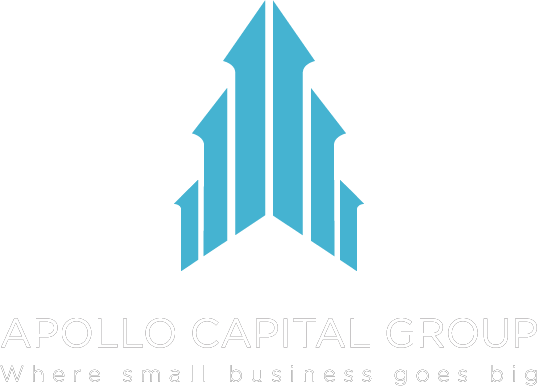Are you a new small business seeking for strategies to support yourself financially? Then you have the choice of a merchant cash advance (MCA)!
It helps you get closer to your long-term objectives. You can quickly receive the cash you need to meet up your bills, plus they are very easy and fast. But you need to keep one thing in mind that they may be pricey and carrying annual percentage rates in the triple digits, creating a terrible cycle of debt for you.
Here’s how to determine whether a merchant cash advance is right for your business. Read on to learn more!

What is Merchant Cash Advance (MCA)?
First off, getting an MCA is quite quick and simple, as was already indicated. It is a different kind of finance. It is distinct from a conventional bank loan. Lender determines your need and ability of repaying the loan after reviewing your credit card receipts. It leads to signing the contract between two parties. By highlighting the amounts that you need and can pay back depending on certain interests. The interest rates may change based on company characteristics. You get a sizable quantity of money for your company.
How does Merchant Cash Advance work?
In general, MCA business loans is suitable for the companies with steady revenues, credit card transactions, or seasonal sales. You should be aware that an MCA is not a loan because the lender is buying your future sales when you apply for one. This contract has conditions when assisting your company with a merchant cash advance loan. You have to to pay back your loan along with the fees.
There are two possible lending structures for this loan:
- Percentage of debit/credit card sales
The lender deducts a fixed amount (daily/weekly) from your credit/debit cards until you return the full advance. MCA business does not have any typical payback conditions. Repayment periods mainly depends upon your sale and range between 3 to 18 months. Note: The sooner you want to return the advance the higher your credit card sales must be.
2. Fixed withdrawals from the bank
The lender may take money out of your company bank account to provide you with a merchant cash advance. Depending on the nature of your business, cash from sales deduct routinely taken daily or weekly from your account. Based on your monthly income, bank chooses predetermined repayment. This arrangement is more suitable for businesses that don’t heavily rely on debit and credit card transactions. As the precise duration of paying back depends on the amount you borrowed.
What are MCA requirements?
Not merely your credit score may be considered when applying for a MCA loan. To be eligible, your company must accept credit and debit card payments; however, there is no requirement for collateral. Your company’s income, cash flow, vendor payment history, number of years in operation, and public records are some of the considerations.
To conclude, if you’re thinking about a merchant cash advance as a funding option for your small business, consider the following criteria:
- operating a business and bringing in money for at least three to six months.
- utilizing a checking account for business.
- Minimum monthly income between $8 and $15,000.
- higher than 550 credit score.
Is Merchant Cash Advance good for business?
MCA for small business is best to get some extra cash to be more functional and competitive. We all know that small businesses don’t get loans from the banks to complete all of their desired tasks.
A small firm that is just getting started and wishes to make modifications without disrupting customers could consider the merchant cash advance (MCA). But, if you’re seeking for a different type of funding, we advise you to read our review of the top merchant account providers available.
On the other hand, for a company that had a significant calamity that forced a total shutdown of commercial activities, MCA is not for it. Finding help through a typical bank loan or grant is preferable to an MCA since these sources don’t need you to carry on with your regular spending in order to repay them.
Calculate the cost of a Merchant Cash Advance
Multiplying the amount received by the factor rate will provide the cost of a merchant cash advance. For instance, if bank grants $50,000 loan with a 1.4 factor rate, your total repayment will be $70,000, which includes $20,000 in costs.
However you should always incorporate the factor rate and other fees into an APR to determine the entire borrowing cost of MCA. You may use this information to estimate how long it will take to pay back the loan in full.
Let’s talk about pros and cons:
Pros and Cons of MCA
Pros of MCA
1. Fast funding
Online applications for merchant cash advances are available, and approval is frequently swift with nothing in the way of supporting documents. MCA may be a means to obtain the funds required to complete a project or make an enhancement that you have in mind for your small business. Within 24 hours, several MCA suppliers grant money.
2. Flexible requirements
MCAs frequently don’t need tangible collateral. Providers could emphasize your debit and credit card transactions or your company’s revenue instead of typical business loan requirements. That is why merchant cash advance is frequently more understanding of companies with average or poor credit.
3. Payment dependence upon your sales.
You’ll also have access to more flexible payment alternatives from a lender. The daily holdback of your transactions sometimes need to adjust if you’re seeing a slump in sales.
Cons Of MCA
Well, talking about the cons, here are some:
1. Expensive
MCAs are one of the costliest sources of funding when compared to other kinds of business loans, such as online term loans or company lines of credit, whose APRs generally vary from 9% to 99%.
2. Risks of frequent repayment and debt cycles
Your incoming sales use to pay back merchant cash advances on a daily (and even weekly) basis, which can have a significant negative impact on your cash flow.
3. Ambiguous contracts
Contracts for merchant cash advances have complications, particularly when there is involvement of factor rates, and payback terms considers as a proportion of your daily sales.
4. Alternatives to MCA
Look into other funding alternatives first, then consider MCA. You still have choices if your company is not eligible for an MCA for whatever reason.
First and foremost, certain online lenders could still provide small-business loans that are worth looking into if you’re a new company, have low credit, or need cash rapidly.
A high-risk merchant account is the second alternative, preferred by businesses which are unable to obtain funding through conventional channels.
Apply for Merchant Cash Advance?
Interested in applying for this loan for your company?
Follow these simple steps:
- Apply
Choose a lender, complete a simple application, and submit your application online in only 10 minutes! This method is entirely safe and costs nothing. Provide the lender safe access to the transactional data from your bank account to expedite the approval process.
- Choose funding!
Within an hour, a funding advisor will get in touch with you to finish your application. They will examine your application and make the strongest offer they are able to provide.
- Establish Financing and Repayment
Your funding might be approved and deposited within 24 hours after choosing the best funding option for your business. Payments will be taken out of the daily or weekly debit and credit card sales of your company automatically. Note: The amount of your payments will depend on your sales.
Frequently Ask Questions
Without bank statements, some alternative lenders could still authorize a merchant cash advance, but the rates would be significantly higher.
A factor rate is determined at the start of the loan and is fixed. For instance, if you received a merchant cash advance of $40,000 at a factor rate of 1.20, you would multiply $40,000 by 1.20 to get $48,000. This indicates that the advance will cost $8,000.00.
If you’re concerned about personal liability, financing your firm with a MCA can be a smart move. This is so that MCAs, unlike, say, invoice financing, which requires collateral.
With a typical loan, you make fixed-amount monthly payments that are due on the same day each month. The remittance for a merchant cash advance is deducted either daily or weekly, and the amount varies depending on your credit card earnings.
You can terminate your current MCA contract by taking out a loan and using the funds to settle the outstanding sum. This is frequently your best alternative because an MCA frequently has more onerous repayment conditions for small business owners than an installment loan, commonly known as a term loan.
Monthly payments are processed by merchant cash advance blursoft depending on credit card transactions made by your company. This implies that until the whole amount is paid, a certain proportion of your transactions will be automatically delivered to merchant cash advance blursoft as payment for your cash advance.
If your firm breaches the terms of the MCA, the MCA company may sue you. This would be considered a breach of contract. A Confession of Judgment clause will also probably have been included to the agreement by the MCA business.


